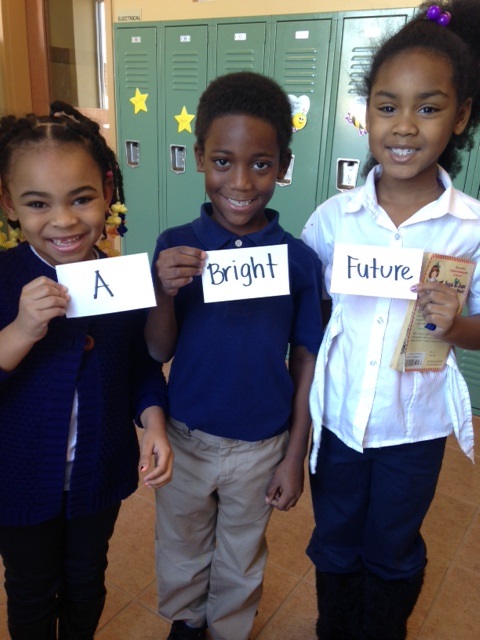A guest blog post by Stepstone Academy
Stepstone Academy is a school located in Cleveland’s Central neighborhood. This community in the heart of Cleveland has a staggering poverty rate of over 89%. Last year, our students took a trip to Edgewater Park, an opportunity very few of them have experienced during their young lives. On a clear and sunny day, staff and students alike piled into busses and headed to the beach. There, students played in the water, built sandcastles, and enjoyed the sense of freedom that can only be truly felt in the presence of expansive natural beauty. One young student, breathless and flushed, ran up to her teacher and asked, “Ms. Lennon! What is that…thing?” Ms. Lennon, unsure of what the student meant, followed her pointing finger and replied, “That’s a seagull.” This student, a little girl of seven years, did not possess the words to describe what she had encountered.
By age three, children living in impoverished neighborhoods may hear up to 30 million fewer words than their privileged counterparts. As children in poverty grow, their vocabulary may not keep pace with their more affluent peers, and they may lack the words to express themselves clearly. Stepstone’s 2016 kindergarten class represents the fourth generation of students living in abject poverty in this neighborhood. Central has been ravaged by generational poverty, and opportunity is sparse.
Thanks to a generous grant from the Cleveland Foundation, at Stepstone Academy, we are implementing GrapeSEED, a first-of-its-kind curriculum designed to tackle this challenge head-on. This program was first designed to teach English to young children as a second language. It combines multiple age-appropriate instructional strategies that encourage children to experiment with words. GrapeSEED has achieved success in teaching economically disadvantaged children critical listening skills, and increasing vocabulary. Stepstone Academy is the first school in the state of Ohio to implement this program.
When we talk about poverty, we often talk about finances. That’s how most people understand it. But the effects of living below the poverty line are much more fundamental than an abstract concept like a savings account. Growing up in poverty means that you don’t have the same experiences as others. Growing up in poverty means that while other kids visited art museums, you played in your neighborhood; while other kids tried strange foods, you weren’t sure you’d have dinner at all; and while other kids learned to argue with their parents, and were frustrated when their logic didn’t land, you lacked the words to describe the way you felt.
When children who grow up in poverty become adults, every one of these contrasting experiences adds up, and the result is chasm that disconnects them from the conventional. What we are doing at Stepstone Academy, is giving children the opportunity to be children, and to experience the world at a formative time in their lives. GrapeSEED, along with Stepstone Academy’s curriculum, field trips, and family involvement, gives students tools to close the gap, to feel connected, and to speak for themselves.



Good day very cool blog!! Man .. Beautiful .. Wonderful ..
I’ll bookmark your website and take the feeds also?
I am happy to find so many helpful information here in the put up,
we need work out extra strategies in this regard, thanks for sharing.
. . . . .